Paris 2024 Olympics: Shot Put Gold Medalist And Gospel Singer
German shot putter Yemisi Ogunleye won gold in Paris she claims by training for it, and praying for it. Afterwards she stunned a world audience with her spontaneous christian song.
Beginnings
Yemisi Ogunleye was born in Germersheim, Germany October 3, 1998 and grew up in the village of Bellheim. Her mother is German and her father is Nigerian. She stands 6 feet tall and although she is a shot putter her frame is more statuesque than stocky. She looks perfectly proportioned for sport (any sport), as if God designed her for just such a purpose.
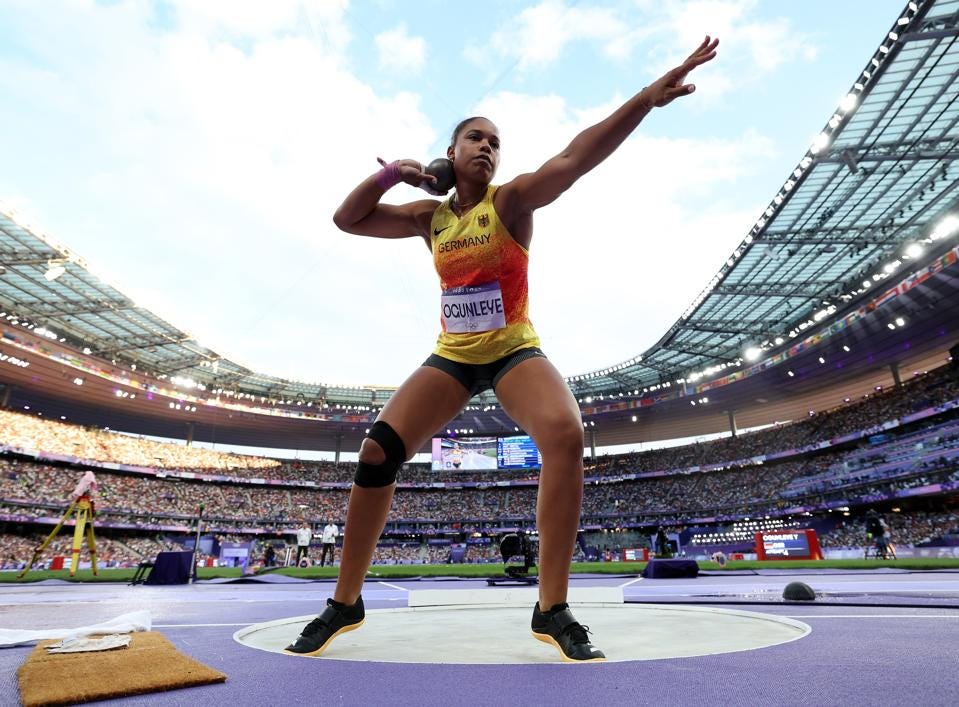
Mannheim Steamroller
She has trained for years at a track club in Mannheim, Germany. She first reached national attention as a shot putter in Germany in 2014 finishing 5th, followed by first in 2015 for women 18 and under. As she progressed to older age groups she continued to maintain top five finishes, finally elevating to medaling in international competition in 2024 with a silver medal in the 2024 world indoor championships (Glasgow) a bronze in the 2024 European championships (Rome) and capped off by a gold medal in the Paris Olympic Games.
Germany and Racism
Although Yemisi was born and raised in Germany she clearly is not your stereotypical German. Yemisi is six feet tall, black and beautiful. Yet she is also quite proud of her German citizenship and heritage, as evidenced by her victory lap around the Stade de France with the German flag draped over her shoulders. This was the first German victory in this event since Astrid Kumbernuss won it in Atlanta in 1996.
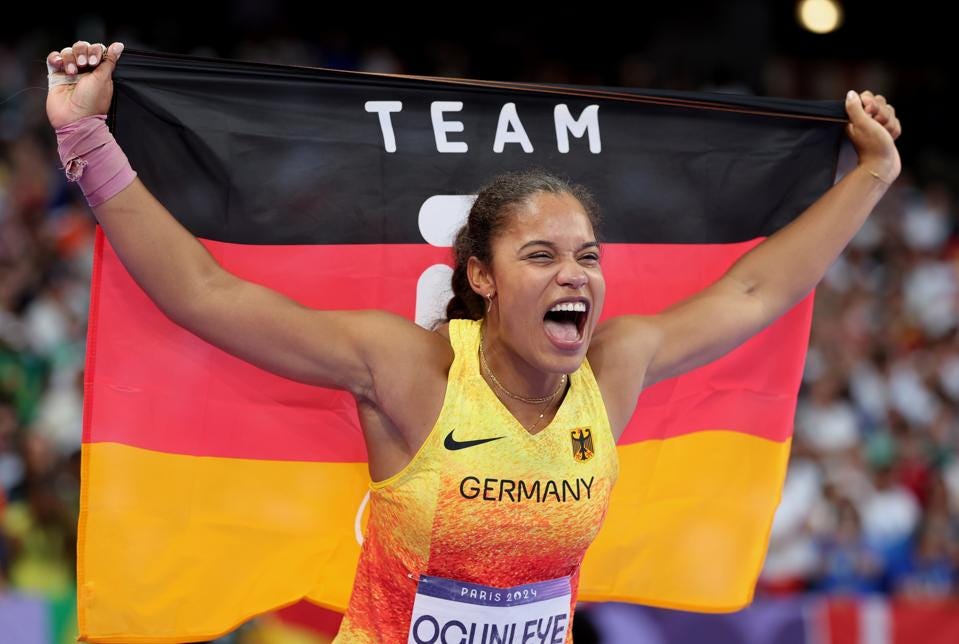
Yet she has faced forms of racist bullying and “mobbing” simply because she looks different. Mobbing as defined by sociologists is bullying perpetrated against an individual by a group of people (in the workplace, in school, etc.,) who unfairly gang up on that person and torment them in usually non-violent ways.
Being Black in a European country is never easy, where there has been racially motivated violence against all people of color. According to surveys by the European Union Agency for Fundamental Rights, Germany is among the worst in the EU in that respect, along with Austria.
In that context at the heart of Yemisi’s faith is a deep belief that she is OK. in a recent interview she stated that her faith helped:
“to know that I am loved just as I am. With a medal or without a medal, I am valuable. It does not matter if I have light or dark skin.”
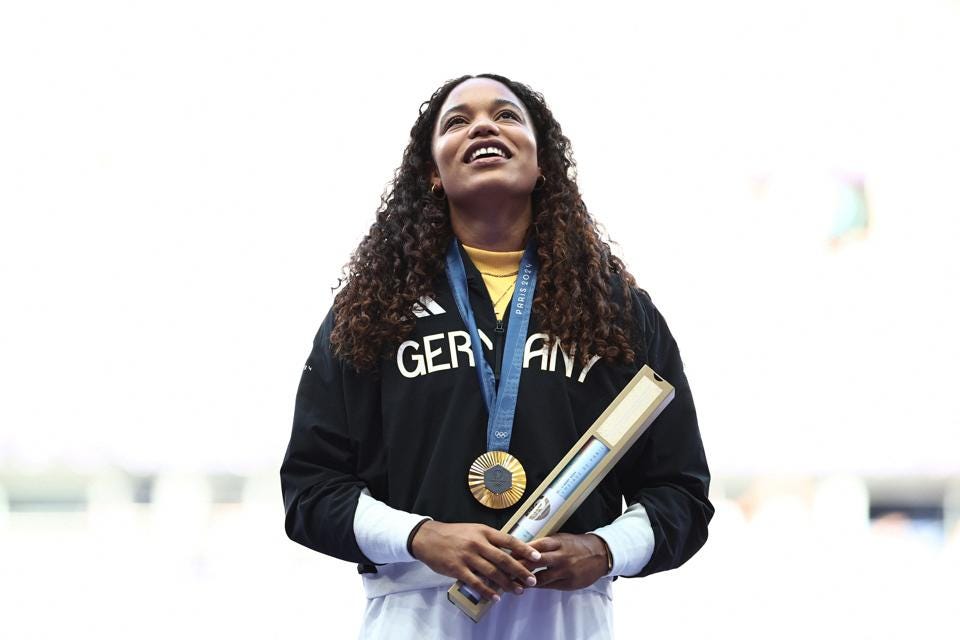
The Church of the Immigrant in Germany
The Catholic and the Protestant church in Germany are in decline, and they have been for decades.
For the first time in German history less than 50% of the German population belong to either the catholic or protestant church. In 2021, the Catholic Church recorded 360,000 "church departures," while the Protestant (Reformed, Lutheran and other protestant branches) church recorded 280,000.
Yemisi Ogunleye is a member of a small but growing independent church growth movement in Germany. She and her family are members of a pentecostal church called Christ Gospel City in Karlsruhe. This non-denominational church has on its website the statement: “ We are christians from different countries and different cultures that want to make a difference in the world around us by integrating our faith into everyday life.”
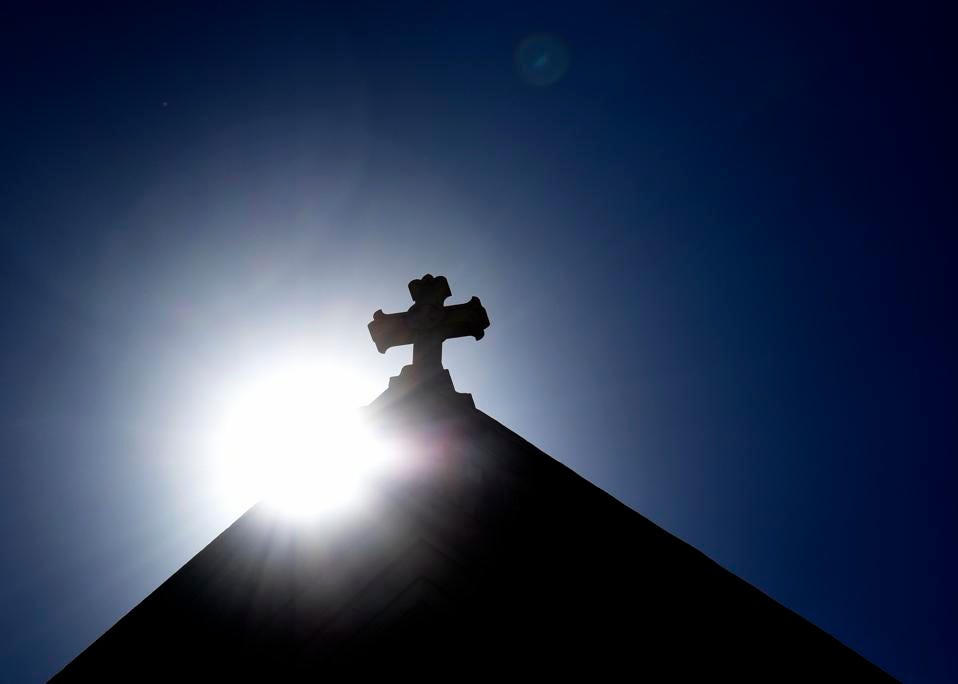
Yemisi Ogunleye has certainly fulfilled the church mission statement.
I would also argue her story is representative of two global trends creating friction and tension in the 21st century, but also opportunity.
Immigration and Depopulation
Western Europe in general and Germany in particular have welcomed waves of immigration since 1950 for many reasons:
Post war reconstruction: 4.2 million German men died in world war II. After the war Germany needed immigrants due to an acute manpower shortage. From 1955 to 1973 it instituted a “gast arbeiter” (guest worker) program which brought in workers from Turkey and southern europe.
Military Conflict: Many immigrants have come from middle eastern countries and Africa due to war and its side effects and in search of economic opportunities.
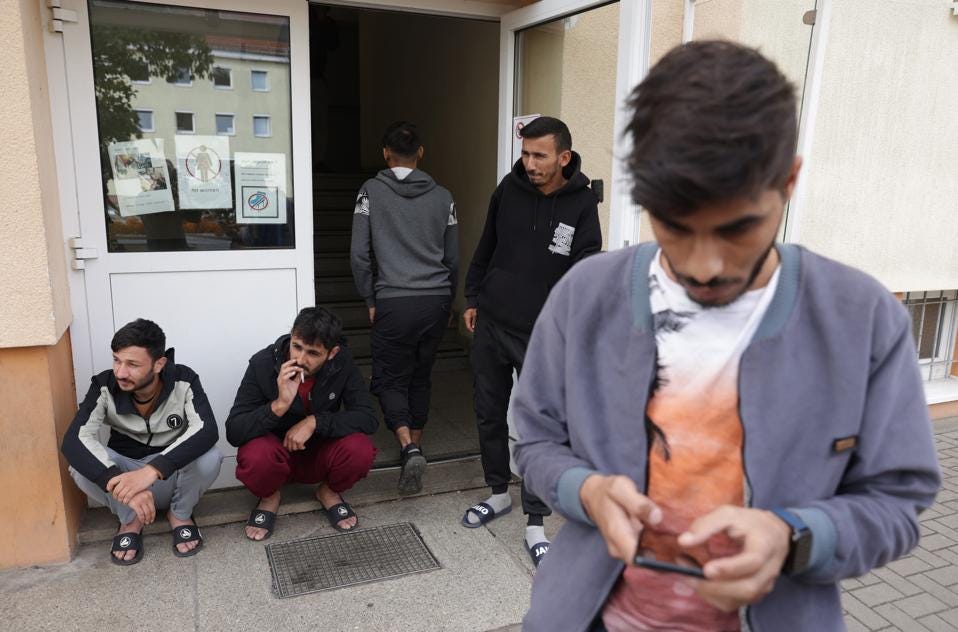
The last few years especially we have seen a wave of anti-immigrant nationalism in Germany. Politicians of all stripes have begun advocating for increased restrictions on immigration on the twin grounds of social incompatibility and strains on the welfare state.
This has fueled the racism that has afflicted many German immigrants as well as people like Yemisi who is not an immigrant.
But Europe in general and Germany in particular are also facing a population crisis that requires immigration as part of the solution. For years birth rates have been plummeting combined with an ageing population. Between 2015 and 2020 alone the EU lost 3.5 million people of working age. The bottom line today: Only three out of five europeans work. That is bad math for the welfare state.

The Solution: Multiculturalism
So that is the tension in places like Germany. The country needs immigrants but immigration can create real stress on the welfare state as well as racial conflict. In the end Germany and Europe have to become more multicultural to survive and thrive.
Yemisi is just one Olympic example of this new multiculturalism in countries like Germany.
Sifan Hassan of the Netherlands is another. She won gold medals in Tokyo in 2020 in the 5,000 meters and 10,000 meters and in Paris in 2024 in the marathon event. She is arguably the greatest female distance runner of all time. Hassan is Ethiopian but her parents moved to the Netherlands in 2008 and she became a citizen in 2013.
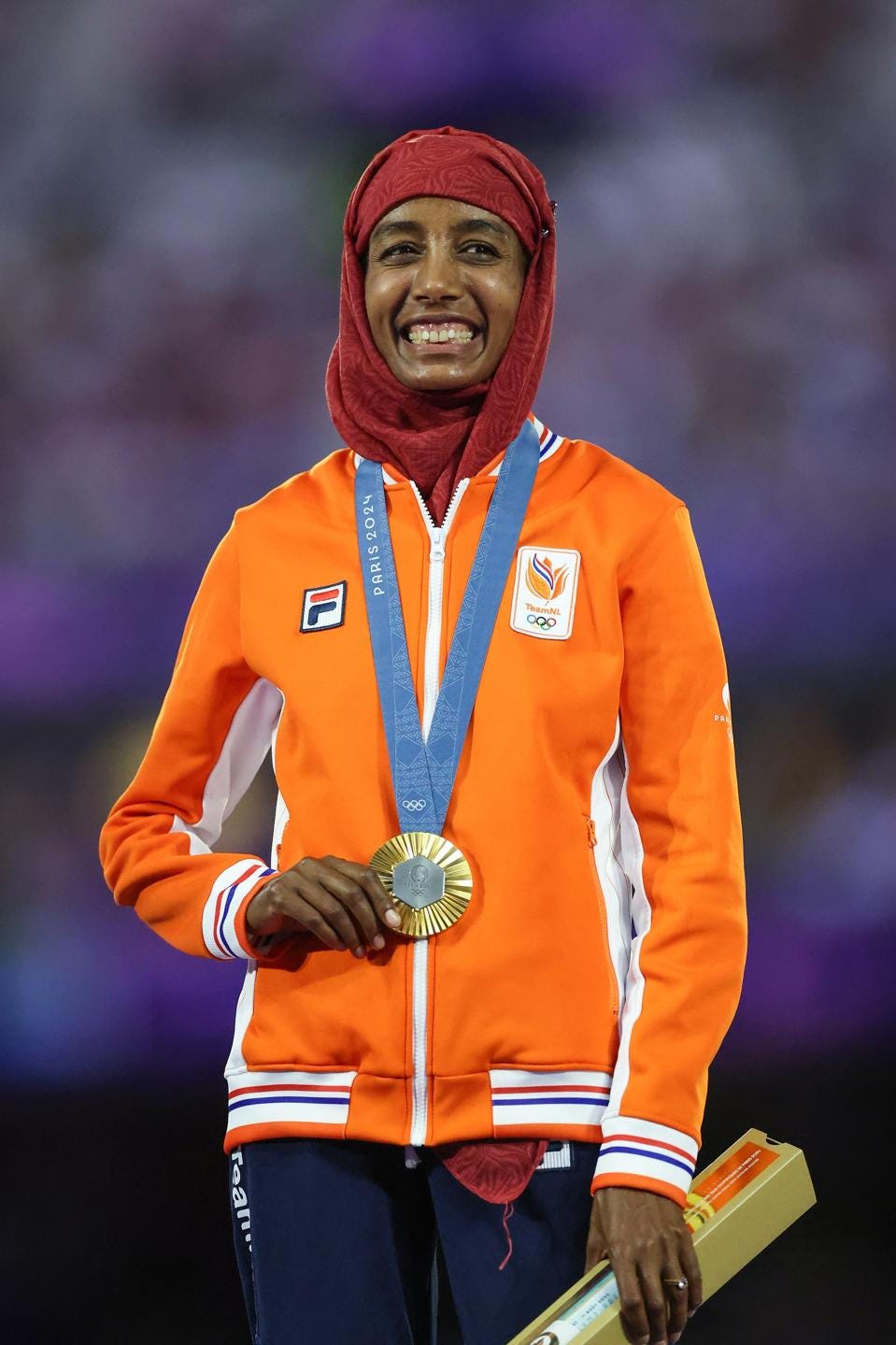
Victor Wembanyama of France is another. He led France to an unprecedented silver medal in men’s basketball. He was born in France in 2004. His father Felix is Congolese born in Belgium. He immigrated from there to France and became a citizen in 2003.
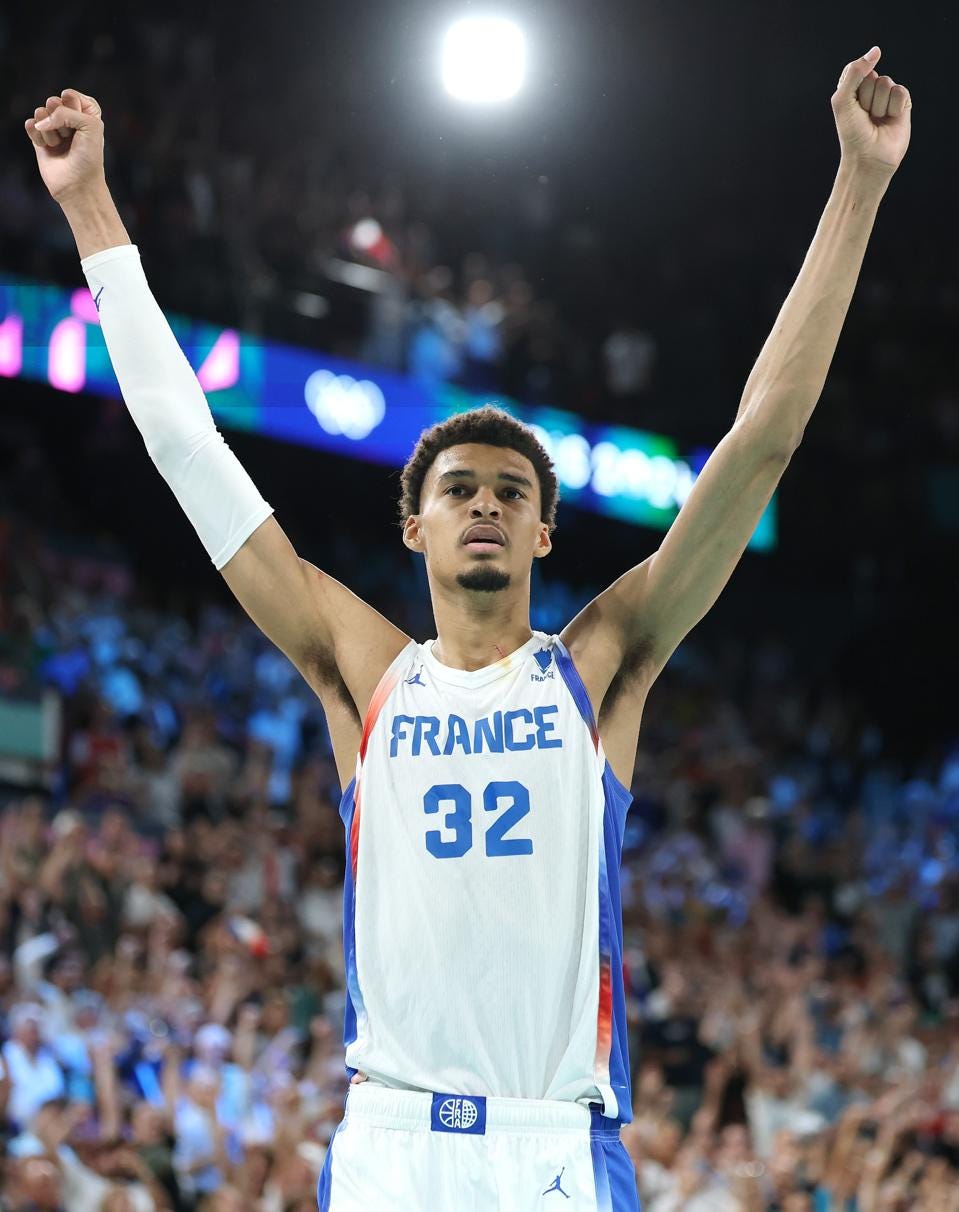
The Olympics are and always have been a mirror of global trends. They mirror (via sports) issues in the culture in areas like race, gender, politics, etc., In this case we see global immigration patterns manifested in the new multiculturalism found on Olympic teams in countries like Germany, The Netherlands and France.
Immigration, I would argue, has created a movement and dispersion of global athletic talent that has made the Games more competitive and interesting. This new multiculturalism in the Olympics is epitomized in the story of Yemisi Ogunleye, the gold medal shot putter and gospel singer from Karlsruhe.



